| Name | Kotone Kenmochi |
|---|---|
| Destination | FPT University(Vietnam) |
| Details | Language study (about 1 week) plus work experience (about 4 weeks) |
| Period | During spring break (February and March) 2022 |
Q. Where did your study abroad take place? How were the studying and/or living conditions there?
I studied in Danang Vietnam and joined the Internship program offered by FPT University. The climate was warm and the ocean was nearby, so I spent my time feeling as if I were in a resort. It was my first time in Southeast Asia, and I was concerned about security and public health, but Danang was calmer than I expected. Vietnam is also attractive for its low cost of living. I stayed at a hotel, and went out for dinner with friends every night.
On weekends, I enjoyed sightseeing with my friends. Although some aspects of the country are still developing, it was interesting to see new buildings being erected and new roads being constructed within a 5-week period. I was surprised at Vietnam's rapid development.
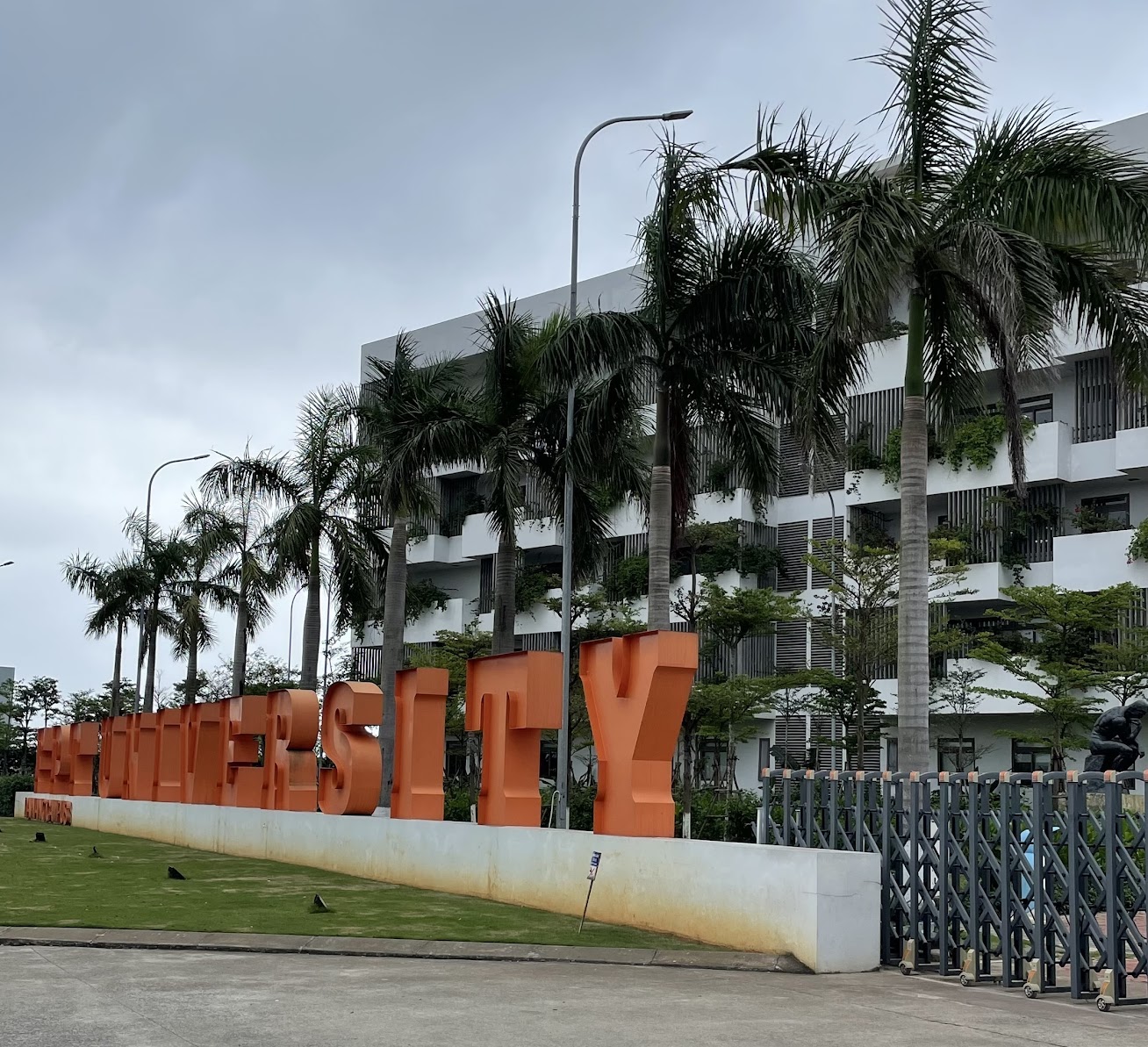
(Photo) Entrance to Danang campus of FPT University
Q. Describe what you studied and experienced. What did you enjoy most in your daily life?
During my stay in Vietnam, I had English classes and an internship program. The first week, I had a business English class. I learned some skills, such as how to speak in business situations, how to write a CV, how to present, and so on. The goal of the classes is to have confidence in my English. Through these experiences, I had many opportunities to speak English in front of others, so I got used to speaking and making mistakes.
After that, I worked in a marketing company as a Japanese internship student. It was my first time doing an internship, so I was very nervous, but all the Vietnamese workers and our boss were kind and they taught me everything. I did SNS marketing, such as writing SNS posts, sending E-mails, translating English to Japanese, and so on. The work was exciting for me but the most enjoyable was the time I spent with my Vietnamese friends. They were very friendly and sometimes invited me to go to dinner and a cafe. We talked about each other's cultures and spent a good time. We still keep in touch through SNS.
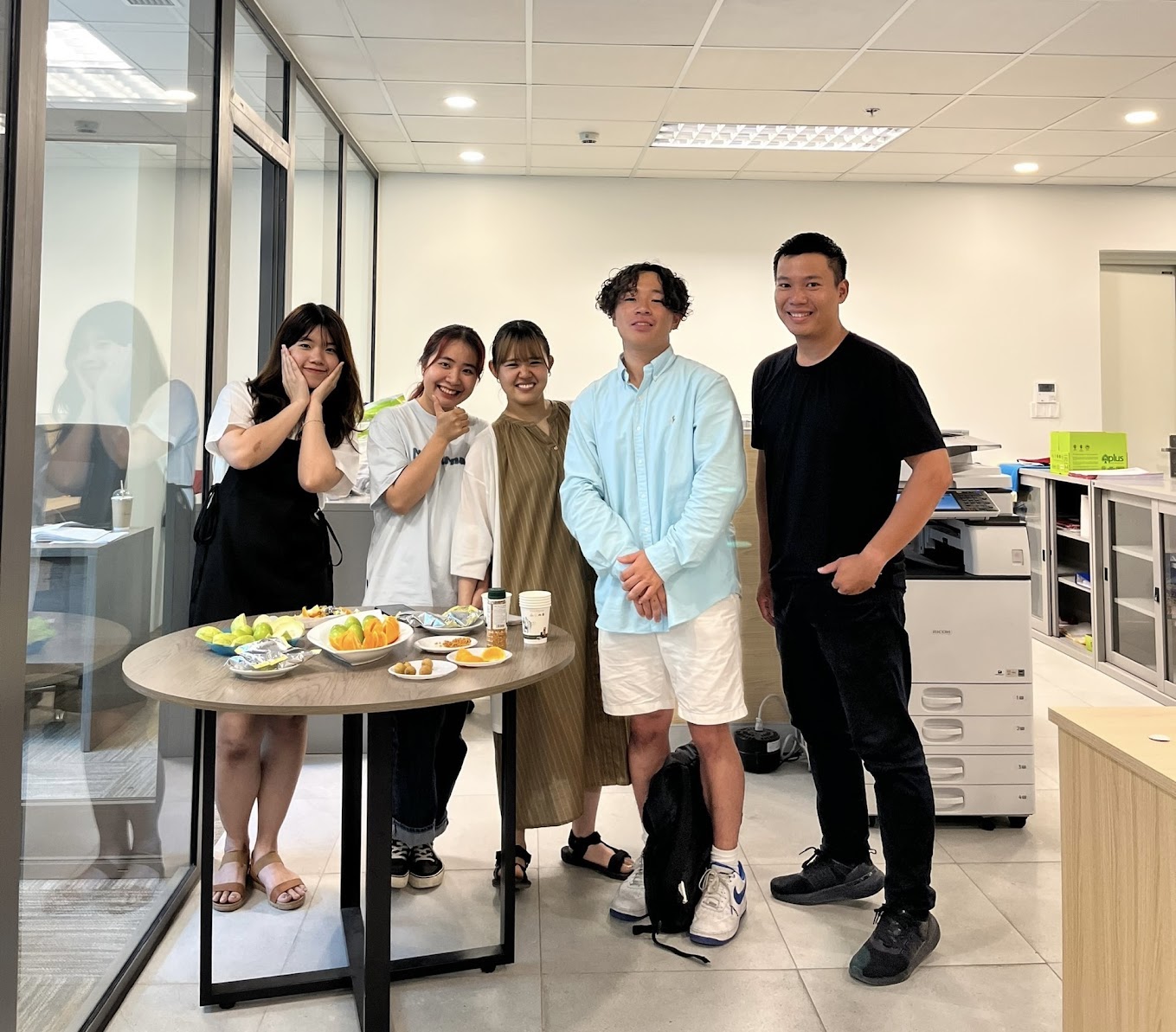
(Photo) With co-workers at the company where Ms. Kenmochi interned
Q. What is the most important thing you learned on your study abroad program?
Through this experience, I learned it is important to ask questions if I have something unclear. I worked in the company and my boss gave me some tasks, but these tasks were not fully explained to me because they were busy and didn't know how well I understood the work. However, if asked them, they taught me in a kind manner. So I learned that, if I don't ask anything, they don't teach me anything. Don't be shy and ask everyone questions.
Q. What was difficult for you while you were there? Was there anything you wished you had better prepared for?
The most troubling thing is encountering cultural differences--especially, food and traffic. I didn't know much about Vietnamese culture. Vietnamese foods are so hot and the traffic is really crowded and dangerous. So I should have done a little research about these factors before I went there so that I was able to get used to it easily.
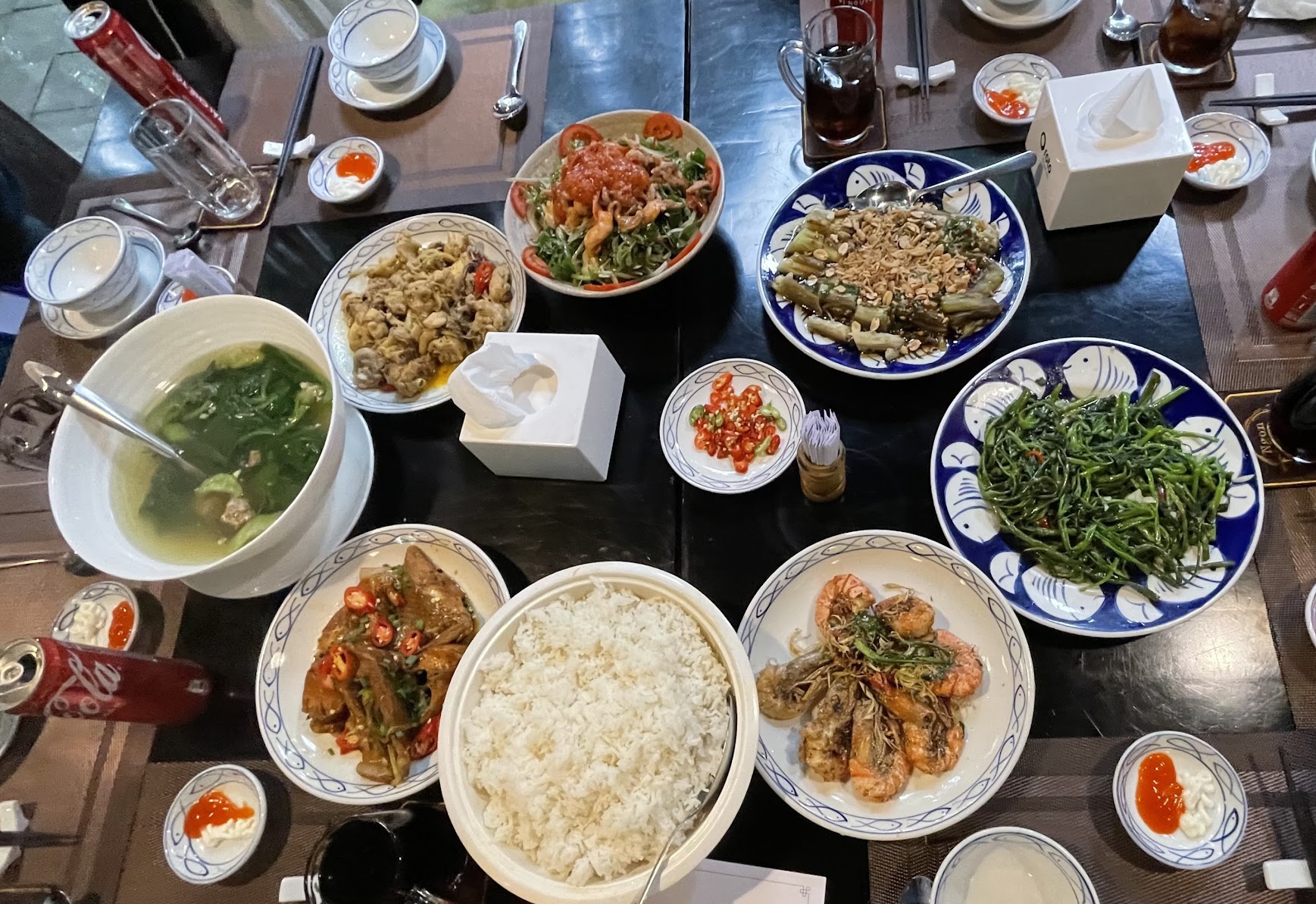
(Photo) Vietnamese cuisine
Q. Do you feel that your communication skills in English have improved?
I did not really feel that my English communication skills were improving while I was there, but after returning to Japan, I took the CASEC test, and I saw that my score increased significantly, so I realized my English abilities had improved. I learned to speak English without being afraid of making mistakes, rather than being too concerned about improving my grammatical skills in English.
Q. Please tell us one of your cross-cultural experiences or your discovery of "international" differences.
The most impressive thing to me was the shopping culture. In Vietnam, there is a bargaining culture. Especially in the local markets, I was sometimes able to buy things for less than half the original price, depending on the bargaining. This culture is not familiar to Japanese people, but once tried, negotiating with sellers becomes enjoyable. I experienced the strong spirit of the Vietnamese people.
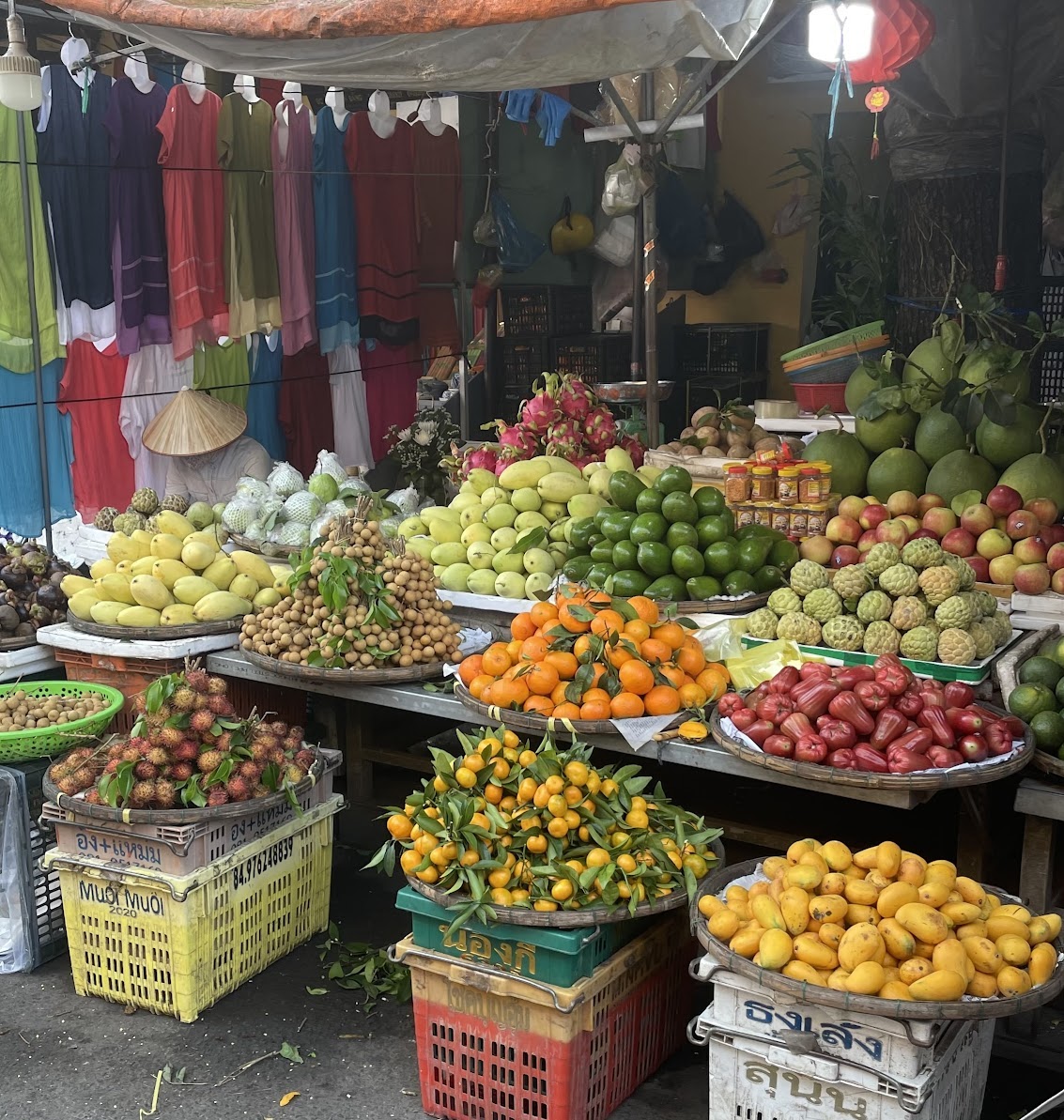
(Photo) Fruit stall at Hoi An market
Q. What kinds of diversities, or "intra-national" differences, of your host country did you notice?
The diffusion of English within Vietnam: I was able to communicate in English at FPT University, but when I went out on the town, there were not many people who spoke in English. So I had to use gestures and sometimes a translator. It was confusing but a good opportunity to learn Vietnamese too.
Q. In what ways are you planning to use what you gained from the study abroad experiences?
Through this experience, I got a wide view of diversity. So, if I work in a company in the future, I will be able to think of things not from the viewpoints normally captured by the Japanese common sense and I will be able to accept a variety of ideas more easily.
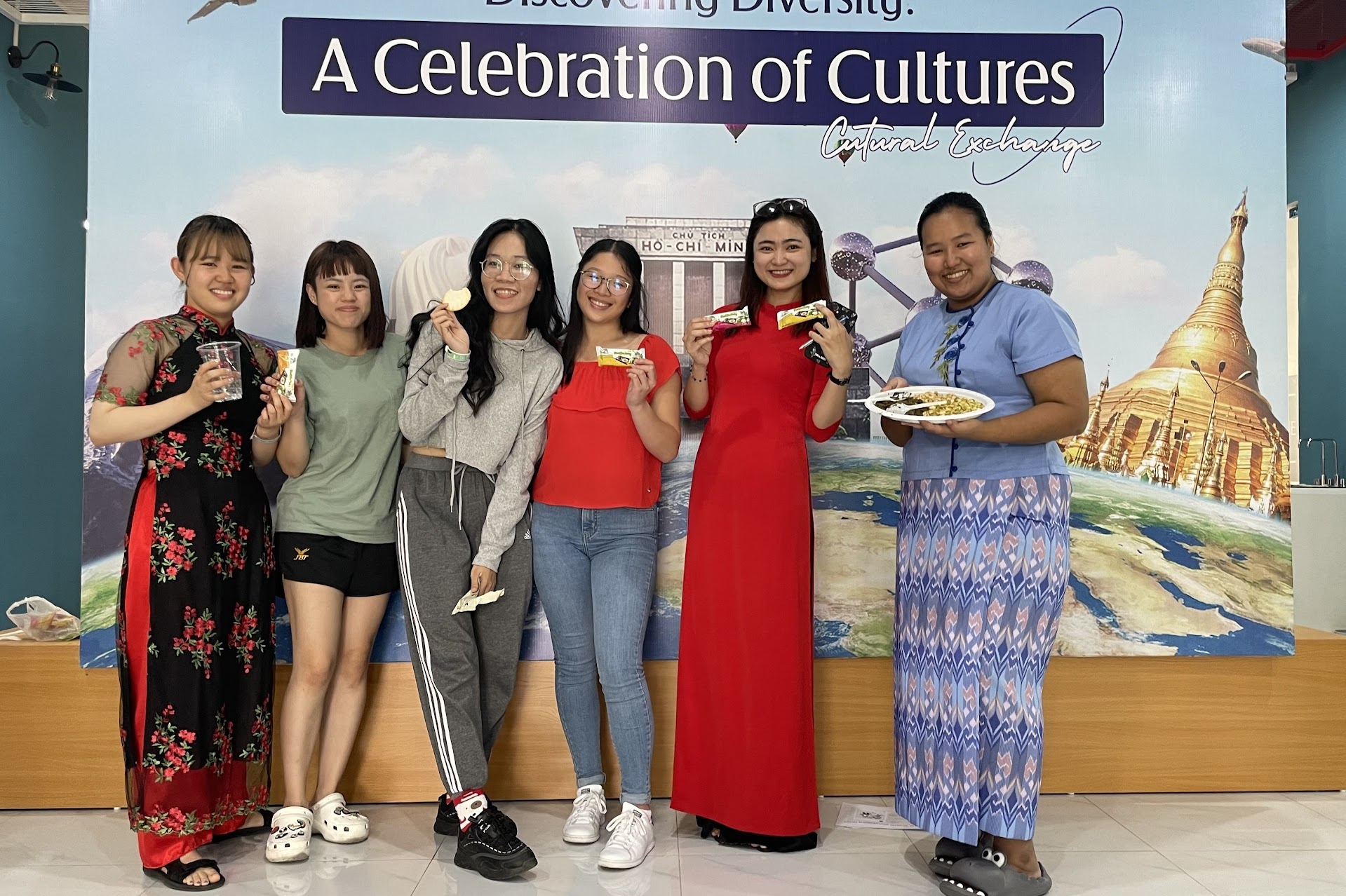
(Photo) With exchange students from other countries at a cultural exchange event, FPT University
Q. What advice would you give to those who are planning to join the same program at the same school in the future?
I can say that students should take action not to bear something they don't like. Not to be satisfied with everything that is given to you and enjoy what you can do in the host country!

 Japanese
Japanese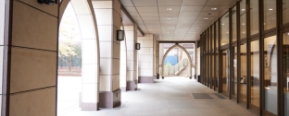
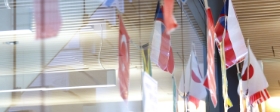
 Contact Us
Contact Us